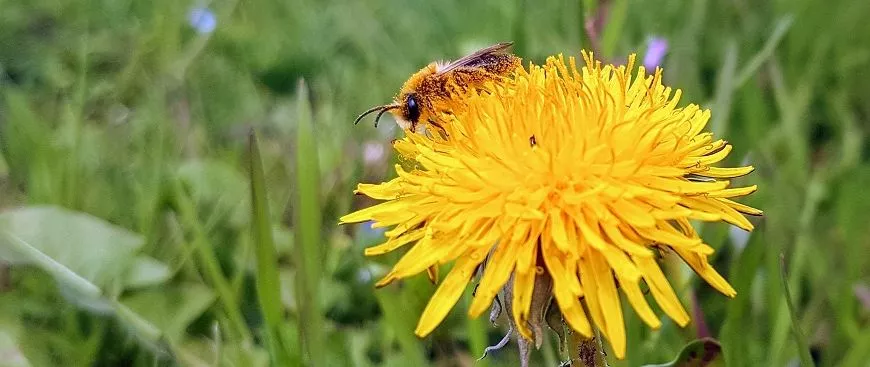
Agricultural Plants for Pollinators (APART)
The project "Agricultural Plants for Pollinators" (APART) aims to identify the naturally occurring flower species and insects in Bavaria's agricultural landscapes and in clover mixtures in organic farming. As part of this, their potential to increase the resilience of pollinators in Bavaria is being assessed. The specialist expertise of the partners TUM, LfL and HSWT complements each other perfectly in order to gather new findings and transfer them into practical agricultural applications.
In our agricultural landscape, the population of numerous pollinators is in massive decline, especially among wild bees, hoverflies and butterflies. This is not only of ecological significance, but also has a negative impact on the profitability of farms and yield security.
In recent years, an increasing number of measures have been introduced to promote pollinators in agricultural landscapes. However, different pollinators have different requirements in terms of flowers and habitat. Many depend on a diverse range of flowers throughout the year. Intensive agricultural practices often lead to limited availability of habitat with sufficient suitable food for these important insects, for example due to the use of pesticides. The targeted provision of suitable flowering mixtures or the promotion of flower-rich habitats, such as forest edges, hedges, roadsides, extensively used meadows, etc., can increase both the quantity and the resistance of pollinators to stress factors such as pesticides.
Project leader: Prof. Sara Diana Leonardt (TUM)
Head of subprojects: Prof. Michael Rudner (HSWT), Dr. Peer Urbatzka (LfL)
Project management: Carmen Nebauer (TUM), Larsia Irlbeck (HSWT), Paula Lauterwasser (LfL), Jessica Westermeier (LfL)
Duration: 01.09.2023 - 31.08.2025